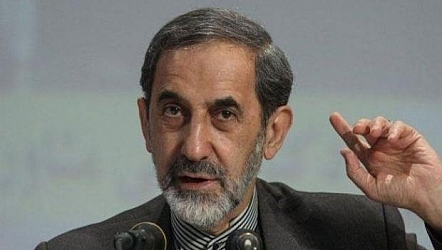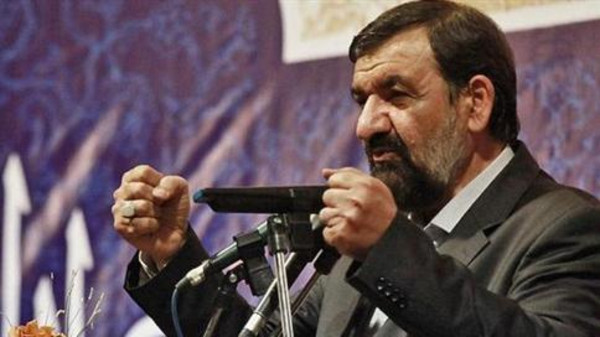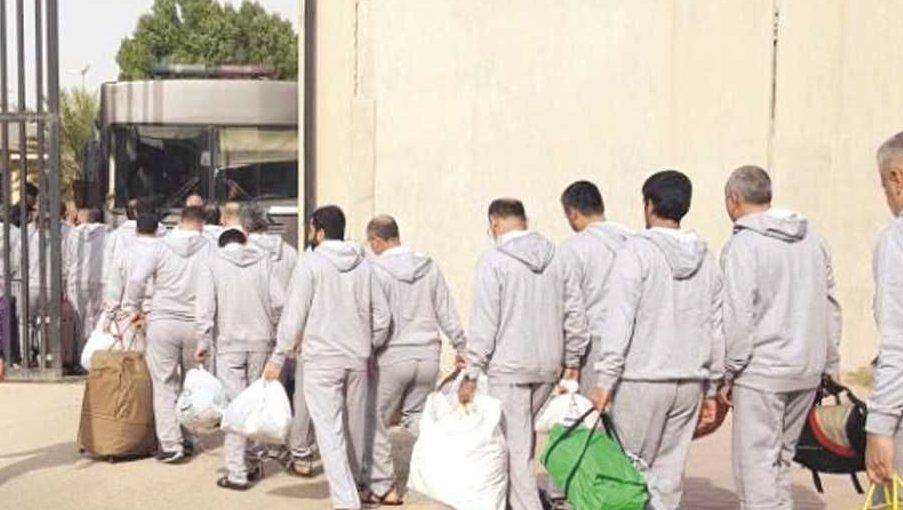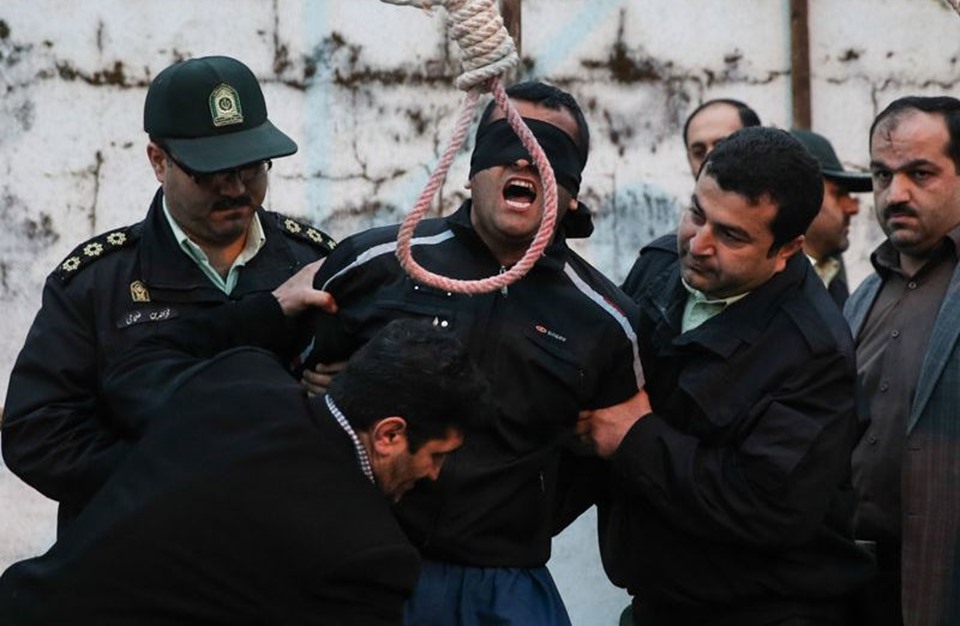Editorials
– Tehran’s Mayer distribution of lands scandal might eliminate his political future
– Khamenei calls for a form of resistant economy and self-sufficiency
Political
– A German delegation visiting Iran
– The United States is not committed to its nuclear deal obligations
Economic
Iran’s oil exports to Japan up by 61%
![]()
Sharq newspaper
“What will happen with Ghalibaf?”
An editorial in Saturday’s Sharq newspaper speculates on the possible future prospects for Tehran’s mayor, Mohammad Ghalibaf, following revelations that he had abused his position to distribute tens of thousands of properties in the capital to his friends and staff members. He is expected to resign on Tuesday from the post, a highly coveted and sensitive one among the regime’s leadership structure, which he has held for ten years.
Holding the mayor’s job also granted him membership of the Council of Ministers, in which position he managed to achieve widespread political popularity through affiliations to a range of parties away from his mayoral responsibilities for providing the customary household services to Tehran’s residents, who make up around eight percent of Iran’s population. His position had also enabled him to submit a presidential nomination, a position which he was believed to have had a good chance of attaining.
Now, sunk in a quagmire of corruption charges although they have yet to be formally confirmed, he is instead forced to focus on losing his job over his distribution of over 27,000 properties to friends, acquaintances and staff members at nominal cost, along with further accusations of profiteering and taking bribes.
The editorial said that following the intervention of the regime’s financial fraud investigation authority to investigate the massive corruption scandal, Ghalibaf is facing professional ruin. The position of Mayor of Tehran is a highly influential and sought after one, with Mahmoud Ahmadinejad going from that post to Iranian President. Ghalibaf is not the first mayor of the city to be disgraced, however, with Gholamhossein Karbaschi, the mayor from 1989 to 1998, previously imprisoned for two years on similar corruption charges and permanently banned from holding any state positions.
The editorial states that Ghalibaf was fonder of attending to his political career than carrying out his mayoral job, comparing him to Gholamhossein Karbaschi, who also shared his political inclination as a prominent reformist. It points out that Ghalibaf had launched an attack on Rouhani several months ago in an attempt to curry support from conservatives in next year’s presidential election, adding that both Karbaschi and Ghalibaf had been born and raised by the Tehran Municipality.
Given the performance of Galibaf, we see that he was fond of doing political work more than the executive role he was in charge of. The editorial compares Gholamhossein Karbaschi, the former Tehran mayor who was one of prominent reformist movement and Ghalibaf politically who attacked Rouhani several months ago in the hope of gaining support by conservatives in the upcoming presidential election as both of these figures were made and raised first in Tehran Municipality.
Avrinsh Daily
“Self-sufficiency does not mean isolationism.”
Saturday’s editorial in Avrinsh Daily focused on economic trends in Iran in light of the recent call by Ayatollah Khamenei for a so-called “resistance economy” to make this the year of economic resistance for the country. The editorial said that the changes in economic policy – from the reconstruction policy of Rafsanjani’s to Khatami’s policy of economic openness to Ahmadinejad’s dumping of imports down to the policies of the present day administration – had led to massive peaks and troughs, which were damaging to Iranian society.
The experience of all these varying policies had a profound effect on Iran’s society which is difficult to simply forget within a couple of years, the article continued citing the example of subsidies; after many years of the state subsidizing food and fuel in Iran, this policy was changed to one of providing cash subsidies direct to citizens, then reduced to only providing these to certain social groups most in need of them.
In the beginning the objective of these subsidies was to support poor and low-income families, the editorial went on, added that this was then expanded to providing support to those who didn’t even fall into these categories before being further extended to provide subsidized energy and to provide support for industry and commerce in order to offer businesses a competitive advantage, enabling them to export goods. This led to the government having to stop the smuggling of goods outside the border and to reduce levels of embezzlement of fuel subsidy documents in state facilities.
Despite all of this experience, the editorial stated, each time someone new comes to power and examines the economic policies they are surprised at the negative results of the different strategies, as though this were a new phenomenon previously unseen in the world. The editorial concluded by suggesting that it would be better to study the potential negative implications of each policy and to establish mechanisms to avert or cope with these before instituting the policies.
Resalat Newspaper:
“The Legal Management of the Development Fund and the Challenges it Faces”
Resalat newspaper’s editorial on Saturday addressed the issue of the management of the National Fund for Development in Iran, the body responsible for investing 20 percent of the country’s oil and gas revenues.
The editorial said that despite the National Development Fund combining the attributes of a ban with the characteristics of a legal institution, its budget is not included in the state budget, with the fund’s regulation and management being covered by Article 84 of the fifth development plan. This subject leads to a discussion of the organization and salary structure of the National Fund for Development, in particular, its senior management’s inflated pay, which has led to a group of them being isolated, an indication of the need for stricter control of the country’s largest investment body.
The editorial says the fund is supervised by three bodies: the board of trustees, the executive board, and the observation authority calling for a change in the make-up of the management structure since the current legislation gives such power only to the president and head of parliament. It also calls for a greater supervisory role of the national body’s performance through the appointment of members to the Supreme Leader or judiciary, as well as calling for increasing the proportion of the national oil and gas revenue invested annually from the current 20 percent.
The editorial further criticizes the fund management’s failure to allocate a portion of its profits to the State Treasury, and for limiting its activities to providing facilities to the private, cooperative and public institutions, the non-governmental sector and investment in overseas capital markets.
The strange thing, the editorial states, is that the fund’s activities are not concerned with any direct investment work, asking whether it would be possible for the fund to be accorded the capabilities and functions of the IMF in order to provide facilities to the private sector, especially while Iran’s domestic manufacturing sector is suffering a severe liquidity crisis, which has forced may Iranian factories to close.
The editorial asks how there can be a national investment fund of this size with its massive financial capabilities, even while the country is unable to maintain its industrial growth rate, calling for the fund’s role to be reduced, with part of its assets redirected to benefit Iran’s general budget.
The editorial concludes by stating that the fund’s provision of $500 million to Iran’s Agricultural Bank, even while the government’s debts to local banks grows to a critical level shows that the banks are unable to provide facilities to Iranian industry, a problem which the National Development Fund should help to resolve.
![]()
♦ welayati: Americans were not committed to their nuclear deal obligations

Member of the Higher Committee for the Nuclear Deal Implementation, Ali Akbar Velayati, noted that the United States was not committed to its nuclear deal obligations, asserting that a number of meetings headed by Abbas Iraqji will be held to exert pressure on the United States to fulfill all conditions concerning the nuclear deal and removal of sanctions.
Source: Arman Emroz Newspaper
♦ Iran’s oil exports to Japan up by 61%

Japan’s Ministry of Trade and Economics announced that Japan’s importation of Iranian oil is 283 thousand barrels per day, achieving 61% increase in compared with July of last year. With 8.2% Iran is ranked fourth in supplying Japan’s needs of oil after Saudi Arabia, the UAE, and Qatar.
Source: Abrar Eghtisadi Newspaper
♦ Bavaria’s Minister of Economics is visiting Iran heading a delegation of 50 members
German District of Bavaria’s Minister of Economics, Eliza Agnor arrives today in Tehran heading a delegation of 50 members until the sixth of this September. This is the second visit of the Bavarian minister to Iran during the last ten months, according to Tijarat newspaper; the first visit resulted in opening an economic office for Bavaria in Iran, and this one will handle machinery and financial issues between the both sides.
Source: Tijarat Newspaper
♦ 12 cities to be added to Iran’s map

Deputy Minister of Roads and Constructions, and Executive Manager of New Cities Construction, Mohsin Nariman, announced the establishment of 12 cities in Iran in Makran territory, Southern Iran, and coast areas such as Oman Sea and the Arab Gulf. Some of the major cities to be added are Jask, Tabnak, Serab, and Teis as Nariman stated.
Source: Tafahum News
♦ Riza’i: amnesty for 20 thousand Hippocrates

Secretary General of the Expediency Discernment Council, Mohsin Riza’I described the report of the human rights observer, Ahmed Shaheed, as false and aimed to cut off relations between Iran and Europe. Although Iran has pardoned about 20 thousand members of mujahideen Khalq, Europe is expected to cut off relations with Tehran, accusing the opposition and international media of hiding information.
Source: Arman Emroz Newspaper
♦ London-Tehran Direct Flight resumes after a 4-Year break

According to some officials, the new airplanes purchased from France will be arriving in Iran in Fall of this year. In addition to that, the Iranian minister of transportations has signed an agreement to resume the direct flight from London to Tehran after four years of gap.
Source: Arman Emroz Newspaper
♦ The Iranian prisoners in Armenia are back to Iran

The Iranian ambassador to Armenia, Kazim Sajjadi noted that eight Iranian prisoners in Armenia will be turned over to the Iranian border guards next week. These prisoners will finish their period of imprisonment in Iran In compliance with the mutual agreements between the two countries, Sajjadi added.
Source: Bartareen Ha Site
♦ Posting photos of the latest barbaric executions in Karj prison

Twelve prisoners were executed in Karj prison on 26, August 2016. Before the execution, prisoners were put in solitary confinement; a procedure followed by the Iranian authorities to allow their families to visit them, but with the silence of the Iranian media. On the other hand, human rights representative, Ahmed Shaheed called the Iranian government to immediately stop these executions; meanwhile, Harana news agency that is concerned with human rights in Iran received some pictures of the executions and posted them to the public.
Source: Araz News
